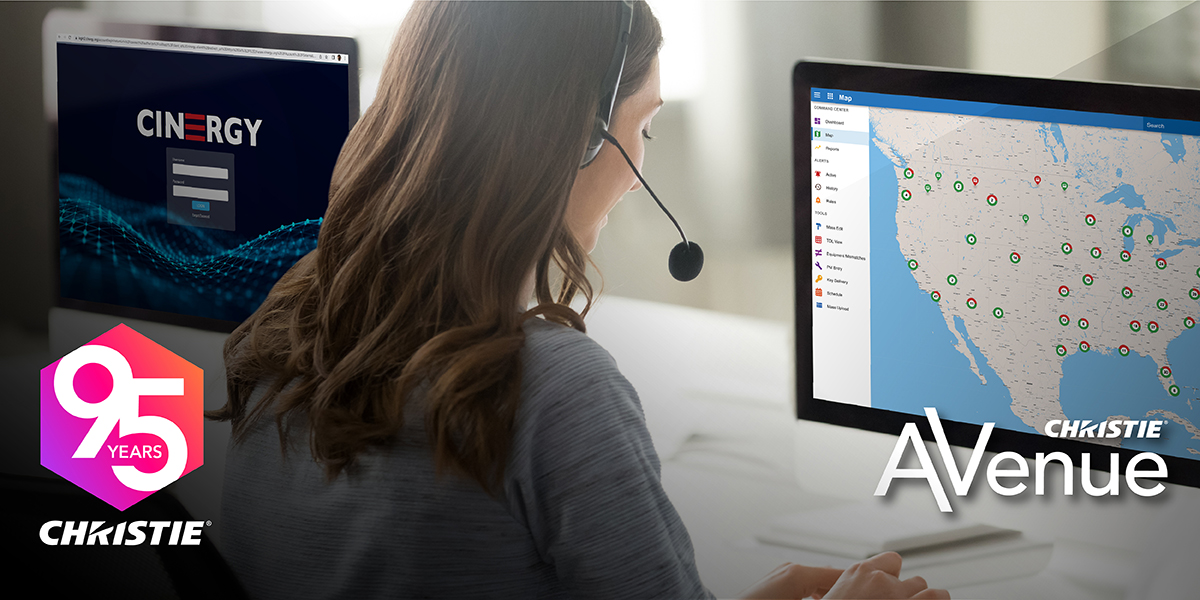Innovation is innovation wherever you find it

Since our earliest days, Christie’s been known for technical innovation, and with good reason. We introduced the Xenon lamps that replaced carbon arc and endless loop platter systems, which meant projectionists no longer needed to change film reels in the middle of a screening or rewind at the end. And our adoption of DLP® technology, leadership in the global transition from film-to-digital, and the development of RGB pure laser illumination are well-known. Pretty solid tech creds — but only half the story.
Business innovation may not get the same attention, but it’s just as important and far-reaching. It’s the same “We can do this better” attitude, but applied to the commercial aspects of the business. Can a particular way of working be re-engineered? Is there a smarter way of doing this? Can we give customers more without taking anything away?
Turning an entire analog industry digital
When digital cinema first seemed possible back in the late 1990s there might have been plenty of tech problems, but we knew every single one was solvable — given time. No, the biggest challenge was turning an entire analog industry digital, from big-name studios down to boutique cinemas and keeping everyone profitable while it happened.
It needed a whole new way for the studio system to do business using virtual print fees, and we helped get 20th Century Fox (now 20th Century Studios), Universal Pictures, and Paramount Pictures, among others, on board. A virtual print fee is a financing mechanism that covers exhibitors’ digital projection equipment costs through a fee distributors pay for each showing. Created in 2005 to act as the financial intermediary between studios and exhibitors, the Christie/AIX virtual print fee initiative has introduced thousands of cutting-edge digital cinema projectors from all manufacturers into hundreds of movie theatres and built a new commercial model. This, just as much as tech, has fundamentally changed how everyone makes, consumes, and funds movies.
If it works here, it will work there
If business innovation matters, it matters in other sectors too. It may be a simple thing, like making sure projector lenses are backward compatible so investing in a new projector doesn’t force investment in lenses you don’t need, or long-term product support even for legacy products so that an investment doesn’t become a liability before its time.
There’s a fair chance, too, that a good idea is simply a good idea, whatever business you run. Like Christie’s NOC (Network Operations Center). As Maz Zaeefjou, director of sales and business development, Global Professional Services at Christie explains. “Initially developed for cinema, our NOC directly employs over 300 technicians, and monitors all connected devices round the clock — projectors, screens, audio, media players, everything. Why shouldn’t every other fixed install have that same level service? Well, now they do. NOC now supports any client that’s under contract with the same 24-hour remote monitoring and issue resolution, the same predictive maintenance, and the same peace of mind.”
That’s the advantage of being around for so long and active in so many sectors. You learn a lot in 95 years and learn how to create products and services that do the most good. It doesn’t matter if it’s technical or commercial innovation; they’re two sides of the same coin, and together they’ll help Christie continue to exceed customers’ expectations.






